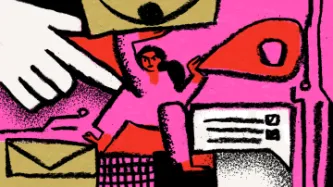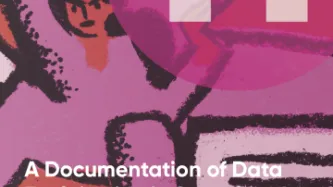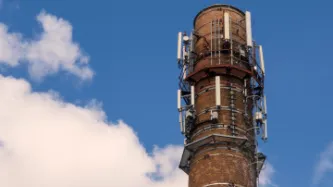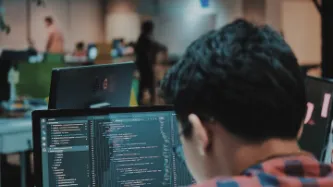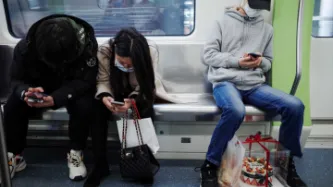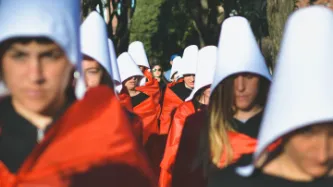Search
Content type: Examples
North Macedonia is the first country in the Western Balkans to launch a contact-tracing app. The government has stressed that the Bluetooth-based app, StopKorona!, complies with all legal privacy requirements. The app follows a decentralised design, so that users maintain full control over their data, which is deleted after 14 days; if they test positive for the virus they can choose to send their location history to the Ministry of Health so that their contacts can be alerted. The app was…
Content type: Examples
India's COVID-19 tracker app, Aarogya Setu, was downloaded 50 million times in the first 13 days it was available. Developed by the National Informatics Centre a subsidiary of the Ministry of Electronics and IT, the app is available on both Android and iOS smartphones, and uses GPS and Bluetooth to provide information on whether the phone has been near an infected person. Users provide a mobile number, health status, and other credentials, and must keep both location services and Bluetooth…
Content type: Examples
Montreal police have launched an online system to enable residents to report suspicious activity such as group gatherings after police officers noticed significant crowding in certain areas of the city. Both the Montreal police and the province's Sureté du Québec can hand out an on-the-spot $1,000 ticket for both indoor and outdoor illegal gatherings. Travellers returning to Canada who refuse to comply with self-isolation requirements can be fined up to $200,000 and up to six months in prison.…
Content type: Examples
The Australian government's planned contact tracing app will reportedly be based on Singapore's TraceTogether, which relies on Bluetooth connections to detect other phones in range and log the results, so that if a phone user tests positive for COVID-19 and consents their close contacts can be alerted by uploading the logs to a centralised server. A second app, ConTrace, is in development for the Public Transport Information and Priority System; the prototype requires no personal information…
Content type: Examples
New versions of drones that currently issue audio warnings reminding people in Elizabeth, New Jersey to observe social distancing guidelines will incorporate sensors and fever-detecting cameras that will monitor if people are sick or failing to social distance on the trails and in the parks of Meriden, Connecticut, according to the commercial drone company Draganfly, which claims the cameras can also detect sneezing and heart and respiratory rates. The company expects to conduct pilot…
Content type: Examples
Palantir and the British AI start-up Faculty are data-mining large volumes of confidential UK patient information to consolidate government databases and build predictive computer models under contract to NHSx, the digital transformation arm of the UK's National Health Service. NHSx said the goal is to give ministers and officials real-time information to show where demand is rising and equipment needs to be deployed, and that the companies involved do not control the data and are not allowed…
Content type: Press release
PI's new report documents 10 tactics that are being developed and deployed to delay or curtail access to reproductive healthcare globally. Especially given the current crisis, as digital services become even more important, we hope this report will highlight how those opposed to reproductive rights are actively developing technical tools to delay or curtail access. A downloadable multi-media asset is attached.
Examples of tech being developed:
Developing digital dossiers about those…
Content type: Long Read
The organised opposition to sexual and reproductive rights has gone digital. Data exploitative tech is being developed that is capable of obtaining vast amounts of intimate information about people’s reproductive health, and delaying or curtailing access to reproductive healthcare.
Technology provides incredible opportunities to democratise access to reproductive health information, services, and care. It can play a vital role in protecting the lives of those needing sexual and reproductive…
Content type: Explainer
In a scramble to track, and thereby stem the flow of new cases of Covid-19, Governments around the world are rushing to track the locations of their populace. One way to do this is to leverage the metadata held by mobile service providers (telecommunications companies - "Telcos" - such as Hutchison 3 (Also known as Three), Telefonica (Also known as O2), Vodafone, and Orange) in order to track the movements of a population, as seen in Italy, Germany and Austria, and with the European Commission…
Content type: News & Analysis
A few weeks ago, its name would probably have been unknown to you. Amidst the covid-19 crisis and the lockdown it caused, Zoom has suddenly become the go-to tool for video chat and conference calling, whether it’s a business meeting, a drink with friends, or a much needed moment with your family. This intense rise in use has been financially good to the company, but it also came with a hefty toll on its image and serious scrutiny on its privacy and security practices.
While Zoom already had a…
Content type: Long Read
‘Let’s build an app for that’ has become the response to so many things. It’s no surprise it’s happening now.
Apps are notorious for their lack of security and privacy safeguards, exploiting people’s data and devices. Now we’re being asked to trust governments with their proposed apps -- of which there are many. These are the very same governments who have been keen to exploit data in the past. For instance, PI currently has four outstanding legal cases arising from the last times governments…
Content type: Long Read
On 15th April Margaret Atwood, author of the Handmaid's Tale, gave an interview to BBC Radio 5 Live where she commented that ‘people may be making arrangements that aren’t too pleasant, but it’s not a deliberate totalitarianism’. You can read more about the interview in the Guardian.
While we agree with Margaret Atwood that we are not necessarily entering an era of "deliberate totalitarianism" we have written the following open letter (download link at the bottom of the page) to her as a ‘…
Content type: Examples
The Department of Health in the US state of Kansas is tracking residents' locations via a platform called Unacast, which compares aggregated GPS mobile phone data from before and after the implementation of social distancing and grades each county on its compliance. As of April 1, 45 of 105 Kansas counties had received an F rating, and the state as a whole had managed a C. Unacast says the data it has access to is updated every other day and publishes updated ratings on all 50 US states.…
Content type: Examples
The city of Moscow is planning to use smartphone geolocation functions to track foreign tourists' movements through the city to prevent outbreaks of COVID-19 after Russia reopens its borders. Moscow accounts for two-thirds of all cases in the country. Moscow City Hall is considering a system that would provide daily updates on tourists' movements using their SIM card data and show when residents come into contact with them; it is already buying location data from Russia's three biggest telecom…
Content type: Examples
The Norwegian contact tracing app, Infection Stop, relies on a centralised database to store users' GPS locations for 30 days, like its Chinese counterpart. Sumula, the company that developed the app, claims is necessary because of technical limitations in Apple's smartphone operating system iOS. Simula has rejected using Bluetooth, like Singapore's TraceTogether, because to work on Apple's iPhones the tracker app would have to be in the forefront in order to be able to use Bluetooth to send,…
Content type: Examples
In order to enforce mandatory 14-day quarantine orders, Kenyan authorities have been tracking mobile phones of people suspected to have COVID-19. Also in Kenya, police enforcement efforts have led to several deaths: three died of injuries from being beaten, one, a 13-year-old boy, was hit by a bullet.
Source: https://www.bbc.co.uk/news/world-africa-52214740
Writer: Dickens Olewe
Publication: BBC News
Content type: Examples
The Kazakhstani ministry of health requires the 8,000 or so Kazakhstani citizens currently under quarantine to use the SmartAstana tracking app, which enables officials to ensure that they remain in isolation. By contrast, for the city of Almaty the ministry of the interior relies on video surveillance technology called Sergek, produced by the local telecommunications firm Korkem Telecom to find people who break quarantine . So far, these two cases are the only examples of the government…
Content type: Examples
Anyone in Egypt who suspects they or others have COVID-19 is required to immediately report it to the authorities in order to stop the spread of the virus and enable treatment. On April 1 Ahmed Refaat, a member of the parliamentary Telecommunications Committee, submitted a proposal for creating an app that would track these cases and allow them to receive a test result without having to return to the testing centre. The proposed app would also provide daily updates on the virus's spread and the…
Content type: Examples
The Guangzhou Public Transportation Group has installed a biometric tablet next to bus drivers' seats so they can check the temperature and identity of every passenger who boards. The tablets will also photograph each passenger, allowing them to be identified by China's facial recognition network in the hope of helping control the spread of the novel coronavirus by enabling contact tracing for anyone displaying symptoms. The Group claims the data so gathered will only be used in the interests…
Content type: Examples
As part of its new state of emergency law, Cambodia's national assembly has granted the country's leader, Hun Sen, new powers to surveille telecommunications, control the press and social media, restrict freedom of movement and of assembly, seize private property, and enforce quarantine orders, as well as enact other measures "deemed appropriate and necessary". Amnesty International called the legislation indefensible and a concentration of unchecked power.
Source: https://www.…
Content type: Examples
The Bangladeshi start-up Sigmind.ai has developed the WATCHCAM Mass Surveillance System, which it claims can recognise individuals even when they're wearing a mask with 87.3% accuracy - and 99.4% if they're not wearing a mask. The company began developing the system in 2019 to provide ATM security, but it now marketing it for contact tracing, help track down infected people, and enforce quarantine.
Source: https://www.dhakatribune.com/bangladesh/2020/04/07/bangladeshi-developers-devise-a…
Content type: Examples
On request, Vodafone Australia, which has 6 million subscribers nationwide, handed the mobile phone location data of several million Australians to the federal and New South Wales governments to help them monitor whether people are following the social distancing restrictions. The governments, medical experts, and media had previously used the data collected by transport apps such as CityMapper, but the number who use that one app is necessarily limited. Vodafone claimed the data was anonymised…
Content type: Advocacy
To the Members of the European Parliament and to the Committee on Budgets of the European Parliament
The EU urgently needs to step up and provide assistance to protect the health and safety of people trapped in camps on the Greek islands - not just to protect their welfare, but to contain the virus itself as a matter of global public health.
However, as we detail in the briefing below, the current European Commission proposal for funds allocation is insufficient to ensure the safety of…
Content type: Examples
Apple and Google have announced a partnership to enable governments and health agencies to use Bluetooth for proximity-based contact tracing to help reduce the spread of the novel coronavirus while preserving user privacy and security. The effort is due to begin with the May release of APIs that will enable Android and iOS devices using apps from public health authorities to interoperate. The two companies will go on to build Bluetooth-based contact tracing into their underlying platforms. The…
Content type: Examples
The government has issued a substantial rewrite of a controversial proposal to track people using their phones and other devices in the bid to contain Covid-19. AmaBhungane, an investigative journalism newsroom, said the first “directions” – issued last week by the minister of communications – raised "serious concerns for their vagueness and lack of privacy protections”. The new regulations provide more judicial oversight, restrict the purpose to contact tracing, and aim to ensure that…
Content type: Examples
The US Centers for Disease Control and Prevention, in conjunction with local and state governments, are using location data collected by the mobile advertising industry from millions of cellphones in order to better understand how Americans are moving during the COVID-19 pandemic and how those movements affect the spread of the disease. The goal is to create a portal that federal, state, and local officials can use to study geolocation from up to 500 US cities and see which retail…
Content type: Examples
The Northamptonshire Police reported a surge in calls from people reporting their neighbours for exercising more than once a day, holding barbecues in their back yards, or failing to cough into a tissue. Nick Adderley said his officers will issue penalty notices if necessary, but thought it important to first educate the public.
Source: https://www.bbc.co.uk/news/uk-england-northamptonshire-52052830
Writer: BBC
Publication: BBC
Content type: Examples
The Uganda Communications Commission announced on March 22 that it would crack down on people spreading fake videos and misinformation about the novel coronavirus through social media, noting that this behaviour is illegal under the Computer Misuse Act, the Data Protection and Privacy Act, and other penal laws. UCC went on to warn in a public notice that it would arrest and prosecute violators.
Sources:
http://www.china.org.cn/world/Off_the_Wire/2020-03/23/content_75847935.htm
https://twitter…
Content type: Examples
Israel intends to deploy a cellphone tracking system developed in Taiwan by Chunghwa Telecom, which launched it on February 1 in Taiwan, where it was used to track the subscribers of Taiwan's five network operators. To begin, Taiwan's Centers for Disease Control compiled a list of people who need to be placed in quarantine or home isolation after coming into close contact with COVID-19 patients or travellers returning from high-risk countries. After local health and civil affairs departments…
Content type: Examples
Spanish police are using drones to warn people to stay indoors apart from necessary trips after seeing a spike in COVID-19 cases. Human officers control the drones and relay via radio warnings to people to leave public parks and return home.
Source: https://www.businessinsider.com/spanish-police-using-drones-to-ask-people-stay-at-home-2020-3
Writer: Charlie Wood
Publication: BusinessInsider
